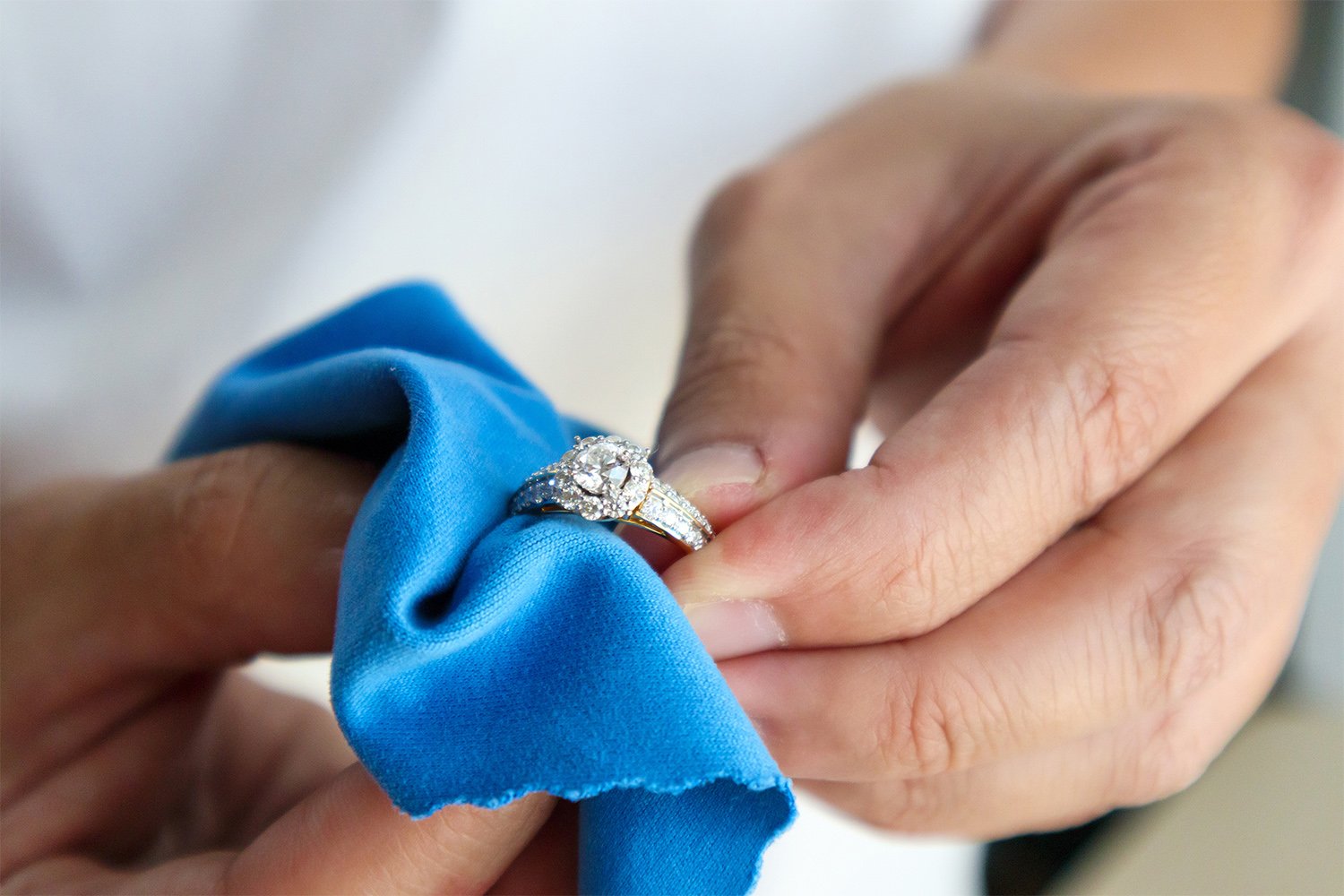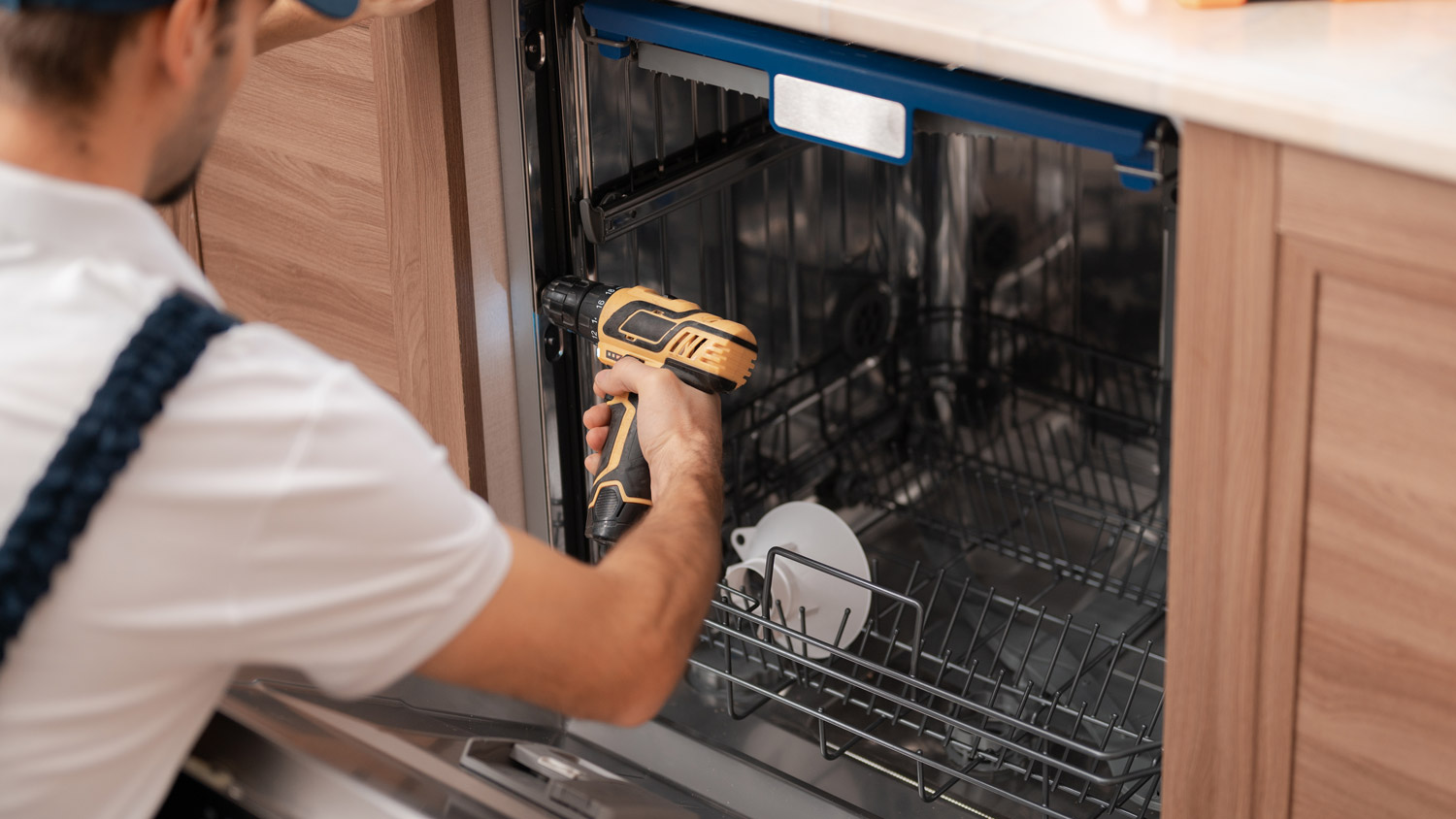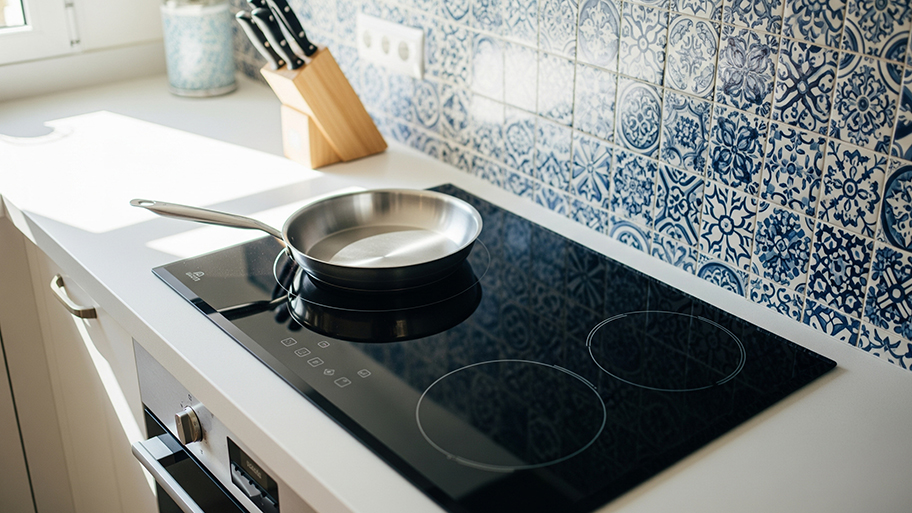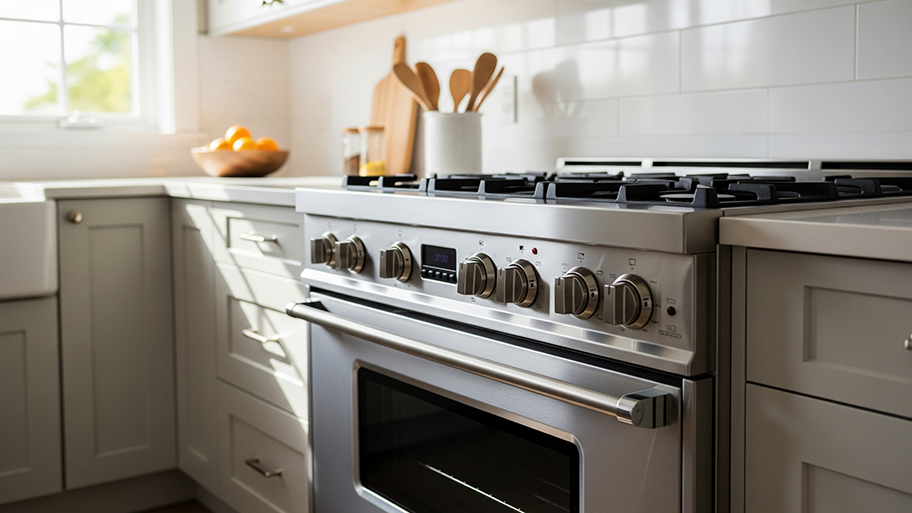
If your refrigerator has been damaged, refrigerator door dent repair cost will vary based on the imperfection's size, depth, and location. Use our guide to estimate how much you'll spend on refrigerator dent repair.
Looking to downsize your cleaning closet? Dish soap takes care of more around-the-house jobs than you may have realized.


By the time we've purchased enough products for cleaning, pest control, and stain removal, there's barely any room left under the kitchen sink. But you'll find an unsung hero sitting just a few feet above the cleaning closet—your dish soap. This versatile cleaner has the right consistency and chemical compounds to pull off a long list of DIY home tasks.
Do you have weeds popping up through the patio stones or overwhelming your garden? Add a few drops of dish soap to a spray bottle of white vinegar for a quick fix.
The soap's surfactant properties ensure that the vinegar will latch onto the weeds and dry them out. Be extra careful not to spray the mixture on any surrounding plants—the solution will not only kill weeds. Wait for a day with low wind for extra safety.
Whether in the kitchen or in the garden, an overwhelming population of invasive pests can be hard to control without chemicals. Soft-bodied bugs, such as gnats, fleas, spider mites, and fruit flies, are easy to catch with a simple and natural homemade trap.
Add a tablespoon of dish soap and a tablespoon of apple cider vinegar to a jar of water. Seal the lid with plastic wrap and poke holes only small enough for the pests to enter. The soap holds the pests in the vinegar solution, keeping them from escaping.
Fun tip: Combine a mixture of dish soap and water and spray them on your favorite outdoor plants to discourage aphids from eating your leaves.
Running low on rock salt? If you wake up to a sheet of ice on your walkway, combine a half-gallon of water, and a tablespoon each of dish soap and isopropyl alcohol. The solution won't freeze in low temperatures, melting the ice without damaging your sidewalk and protecting it from the chilly day ahead.
The common chemicals in dish soap make it a prime candidate for a long list of unexpected chores around the house outside of the dishes. Add a few drops to a bucket of warm water to clean:
Counters
Tile or laminate floors
Steel appliances
Windows (especially particularly dirty ones)
Bathroom vanities, tubs, and shower tiles
Once you've gone through the house, deep clean your mop and broom by soaking it in a solution of water and a few drops of dish soap.
When desperate times call for desperate measures, half a bottle of dish soap and a bucket of water can help unclog a toilet. The soap breaks down whatever is clogging up the works while the water provides the pressure to send the soap deeper into the pipes. Opt for hot—but not boiling—water for better results.
You're likely sensing a pattern by now—wherever you find persistent grease, reach for the dish soap. From marinara sauce to hamburger grease, a drop of dish soap can release the stain before heading into the washing machine.
Lightly rub the soap on the stain in a circular motion until it foams. Let it sit for a few minutes before fully rinsing with water, letting the water pass through the fabric. For best results, toss into the washing machine as soon as possible.

Our favorite jewelry loses its luster over time. From the natural oils on our skin to the soaps and lotions that pass over them each day, it's important to give them a wash every few weeks. However, many fine metals don't react well to hard chemicals, making—you guessed it—dish soap an excellent solution.
Add a few drops of dish soap to warm water to soak silver, gold, and even gemstones. After a few minutes of soaking, dry your jewelry with a lint-free cloth.
Grills and patios go hand-in-hand, but grease and pavers do not. After a messy barbecue, you could end up with grease stains on your natural stone patio or synthetic pavers. Cover the stones in pure dish soap and let them sit for 20 to 30 minutes. Use a thick-bristle brush to scrub the area before rinsing with the hose.
You may need to make several passes with the soap and water before seeing complete results.
Hairbrushes have the habit of collecting more than just our rogue strands. Dead skins, dust, and dirt can collect at the base of the brush, creating that all-too-familiar layer beneath the bristles.
After removing as much hair as possible, soap the brush in a warm bath of water and a few drops of dish soap. Use an old toothbrush to bring up any remaining debris, rinse, and let it fully dry before use.
When your glass of wine goes tumbling to the ground, try not to panic. Grab a paper towel and blot up as much of the liquid as possible.
Fill a glass with warm water and lightly pour over the area to see if you can dilute it before trying to remove any of the stain.
If you have clear dish soap handy—colored dish soap could affect the color of the carpet—drop 2-3 drops into a bowl of warm water. Using a clean rag, lightly scrub the outside of the stain with the soap mixture, working your way into the center.
Continue to blot, rinse, and clean until the spot has cleared.
Dish soap may not seem like the powerhouse cleaner of your kitchen, but its gentle and grease-fighting qualities make it an unexpected hero of the home. Make your own green cleaners with a variety of common pantry items without breaking the bank.
From average costs to expert advice, get all the answers you need to get your job done.

If your refrigerator has been damaged, refrigerator door dent repair cost will vary based on the imperfection's size, depth, and location. Use our guide to estimate how much you'll spend on refrigerator dent repair.

Discover the average dishwasher installation cost, key price factors, and tips to save on your project. Get transparent, expert-backed estimates.

Broken glass stove tops are not only unsightly; they can also be dangerous. Use this guide to learn how much glass stove top replacements cost based on factors like size and type.

Finding the right pro to install your new washer and dryer will help the machines work better, last longer, and ensure everything is connected correctly.

Understand the top reasons why your oven smells like gas, the severity of the issue, and how to address the causes before calling a pro.

Learning how to remove an oven door makes it easier to clean or repair it. Follow these steps to remove your oven door without damaging it.